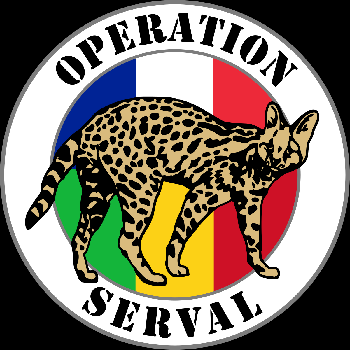As France’s Operation Serval in northern Mali continues to unfold, fighting is increasingly concentrated in the Adrar des Ifoghas uplands north of Kidal to which AQMI and its allies had fallen back after their tactical retreat from the main towns in the early days of the French intervention. Consequently, French troops have taken control of the remote town of Tessalit, just 70 km from Algeria’s southern border, and are conducting operations in a mountain range that actually extends northwards into Algerian territory – uncomfortably close, from the Algerian point of view. With the jihadist groups under pressure from French air strikes and ground offensives by Chadian forces, this puts Algeria, and its armed forces in particular, in role of gatekeeper. It is in this context that French army general Henri Poncet (an Africa specialist who coincidentally was born in Oran) was quoted by French news magazine Marianne at the end of February as lauding in no uncertain terms Algeria’s “courageous” support for the French war effort. “At a time when the joint European defence effort is conspicuous by its absence, Algeria has turned out to be our best ally in our intervention in Mali,” opined the general, going on to argue that the time has come for Algeria and France “to march ahead together – History has just given us the opportunity to do so, by designating a common enemy.”
Algiers’ position is not without ambiguity, however. After receiving Sergei Lavrov on Feb. 11, for example, President Bouteflika made no comments to the press himself, leaving the talking to the Russian Foreign Minister – who naturally seized the opportunity to restate Russia’s traditional opposition to outside (and especially Western) intervention in the affairs of sovereign states and to emphasise the harmony of views between Algiers and Moscow on the need for negotiated, “political and diplomatic” solutions to conflicts in countries “such as Mali and Syria”. In Mali, grumbled Lavrov, the French now found themselves fighting “the same people they armed in Libya”. Even though in reality Algeria, by force of circumstance, now has little choice but to collaborate with the French against AQMI and its allies, there can be little doubt that Algiers shares the view that what is now happening in Mali is in large part the consequence of former French President Sarkozy’s adventurism in Libya.
The upheavals in Mali and Libya having creating immense problems for Algeria on its southern and eastern borders, the Algerian leadership has, as we indicated in our last report, expressed interest in acquiring advanced, US-made killer drones (specifically the MQ-9 Reaper) with which to patrol these vast and almost uncontrollable frontiers. However, it would appear that such efforts – be they directly with the US authorities or via the British – have led nowhere (perhaps unsurprisingly given the sensitive nature of the technology which has not even been made available as yet to the United States’ closest Arab allies in the Gulf). In the wake of this failure, the Algerian media has claimed that the first prototype Algerian-made drone, which has apparently been in development since President Bouteflika launched the idea during a visit to Ouargla in 2010, will be ready “by the end of this year”. There is no indication however that the future Algerian drone will be armed, and even if a prototype does fly before the end of 2013, mass production and deployment would still be a long way off, leaving the Algerian military dependent on other means for patrolling the vast desert badlands – and perhaps tempted to envisage closer cooperation with the US military’s newly established drone capability in neighbouring Niger.
Visited 1 times, 1 visit(s) today


Soyez le premier à commenter